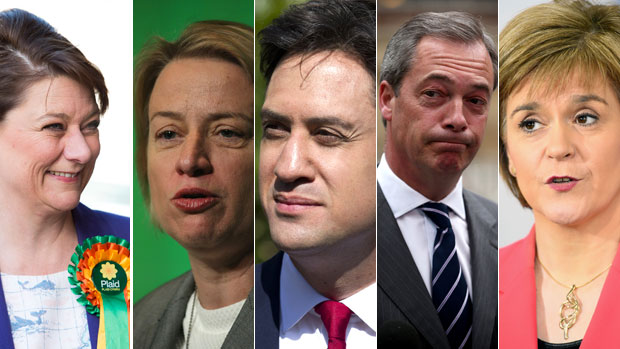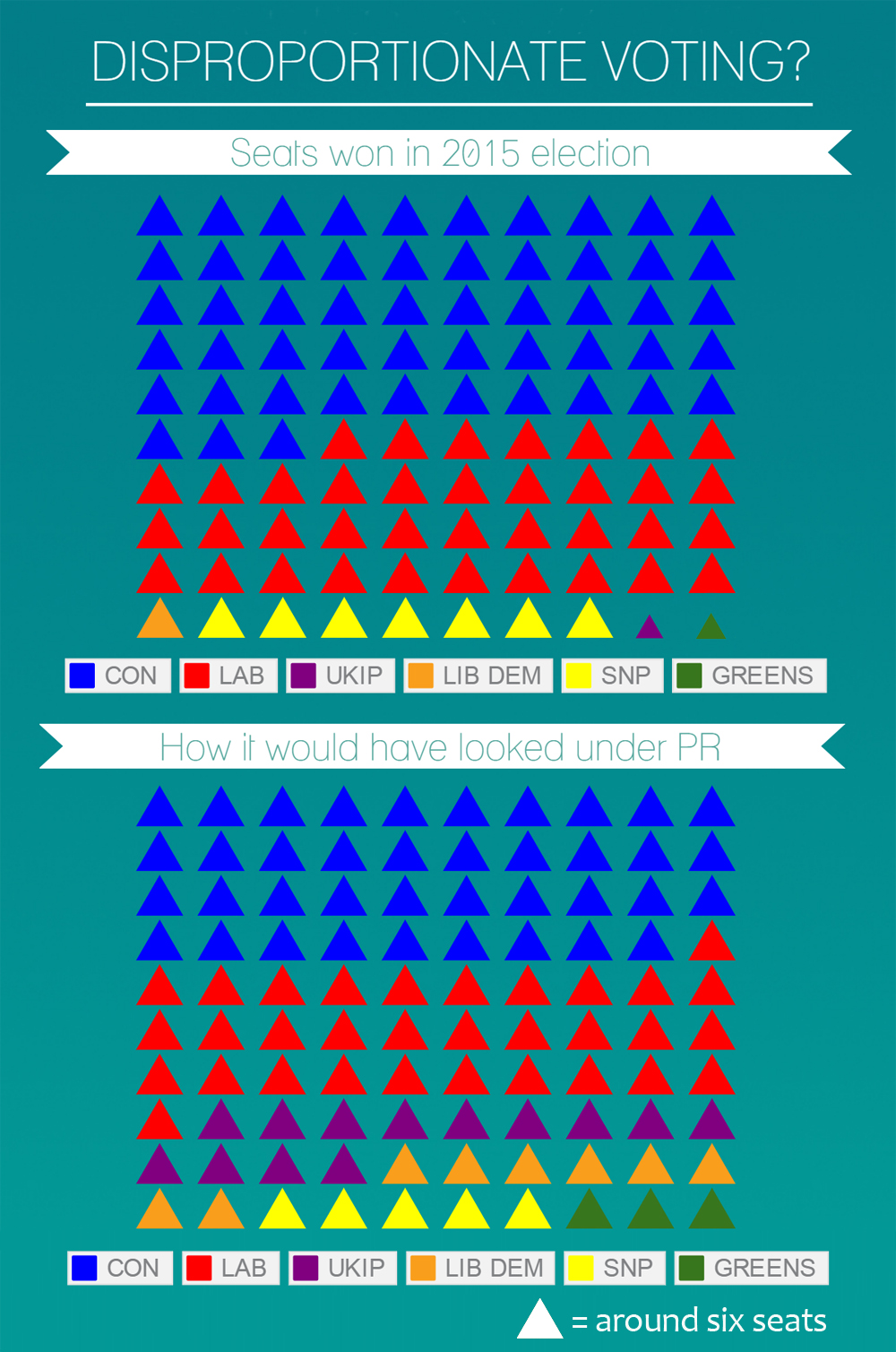Was the 2015 election the most unfair ever?
Campaigners argue that the recent election 'disenfranchised millions', underlining the need for a better system

A free daily email with the biggest news stories of the day – and the best features from TheWeek.com
You are now subscribed
Your newsletter sign-up was successful
A report by the Electoral Reform Society has criticised the "divisive and disproportionate" results of the 2015 general election and highlighted how an alternative voting system could have returned a very different result.
The report, titled The 2015 General Election: A Voting System in Crisis, reveals how the election would have looked if Britain did not use the first-past-the-post system, which many criticised after Ukip and the Greens took almost five million votes between them, but only managed to get one MP each.
Some of the report's key findings include:
The Week
Escape your echo chamber. Get the facts behind the news, plus analysis from multiple perspectives.

Sign up for The Week's Free Newsletters
From our morning news briefing to a weekly Good News Newsletter, get the best of The Week delivered directly to your inbox.
From our morning news briefing to a weekly Good News Newsletter, get the best of The Week delivered directly to your inbox.
- 50 per cent of votes in the election (22m) went to losing candidates, while 74 per cent of votes (15m) were 'wasted'
- Over 9 per cent of voters (2.8m) were likely to have voted 'tactically'
- Under a more proportional voting system – the single transferable vote – the Conservatives would have won 276 seats to Labour's 236, while the SNP would have secured 34, Ukip 54 and the Lib Dems 26. The Greens would have won two more seats – one in Bristol and one in London.
- This election saw an MP win on the lowest vote share in electoral history – 24.5 per cent in South Belfast
- 331 of 650 MPs were elected with less than 50 per cent of the vote, and 191 with less than 30 per cent.
Katie Ghose, Chief Executive of the ERS, said: "This report shows definitively that our voting system is bust. May 7 was the most disproportionate election in British history – and it's about time we had a fairer system for electing our MPs."
Ghose said that the fact that nearly three quarters of votes were "wasted" – which the report defines as people either voting for a losing candidate or providing surplus votes to a winning candidate – shows the system is both "archaic and divisive" and "leaves millions disenfranchised and forces millions more to feel that they have to vote for a 'lesser evil' – instead of who they really support."
But Labour MP Dame Margaret Beckett said that the current system was preferable to the alternatives because it tended to return the result the electorate wants, the BBC reports.
"One of the virtues of our present system is that the British people understand it, they know how to work it. In 2010 they didn't like any of us and they didn't give any of us a majority," she said.
A free daily email with the biggest news stories of the day – and the best features from TheWeek.com
"But in 2015 they said 'hang on a minute, we'd rather have a majority government of one or the other, than a mess'."
Click on infographic to expand

-
 How to Get to Heaven from Belfast: a ‘highly entertaining ride’
How to Get to Heaven from Belfast: a ‘highly entertaining ride’The Week Recommends Mystery-comedy from the creator of Derry Girls should be ‘your new binge-watch’
-
 The 8 best TV shows of the 1960s
The 8 best TV shows of the 1960sThe standout shows of this decade take viewers from outer space to the Wild West
-
 Microdramas are booming
Microdramas are boomingUnder the radar Scroll to watch a whole movie
-
 How corrupt is the UK?
How corrupt is the UK?The Explainer Decline in standards ‘risks becoming a defining feature of our political culture’ as Britain falls to lowest ever score on global index
-
 The Mandelson files: Labour Svengali’s parting gift to Starmer
The Mandelson files: Labour Svengali’s parting gift to StarmerThe Explainer Texts and emails about Mandelson’s appointment as US ambassador could fuel biggest political scandal ‘for a generation’
-
 Reforming the House of Lords
Reforming the House of LordsThe Explainer Keir Starmer’s government regards reform of the House of Lords as ‘long overdue and essential’
-
 How long can Keir Starmer last as Labour leader?
How long can Keir Starmer last as Labour leader?Today's Big Question Pathway to a coup ‘still unclear’ even as potential challengers begin manoeuvring into position
-
 Three consequences from the Jenrick defection
Three consequences from the Jenrick defectionThe Explainer Both Kemi Badenoch and Nigel Farage may claim victory, but Jenrick’s move has ‘all-but ended the chances of any deal to unite the British right’
-
 The high street: Britain’s next political battleground?
The high street: Britain’s next political battleground?In the Spotlight Mass closure of shops and influx of organised crime are fuelling voter anger, and offer an opening for Reform UK
-
 The MAGA civil war takes center stage at the Turning Point USA conference
The MAGA civil war takes center stage at the Turning Point USA conferenceIN THE SPOTLIGHT ‘Americafest 2025’ was a who’s who of right-wing heavyweights eager to settle scores and lay claim to the future of MAGA
-
 Is a Reform-Tory pact becoming more likely?
Is a Reform-Tory pact becoming more likely?Today’s Big Question Nigel Farage’s party is ahead in the polls but still falls well short of a Commons majority, while Conservatives are still losing MPs to Reform